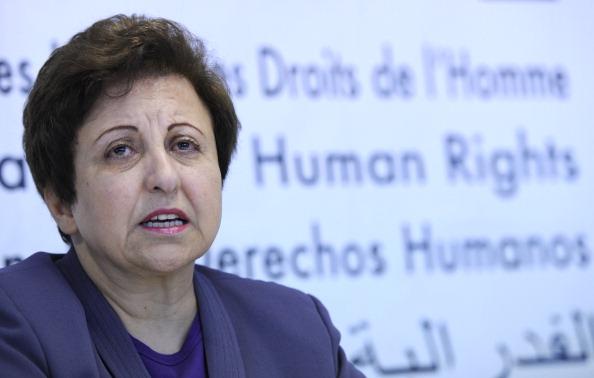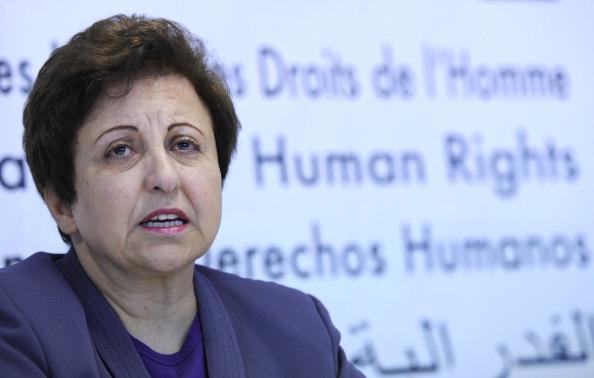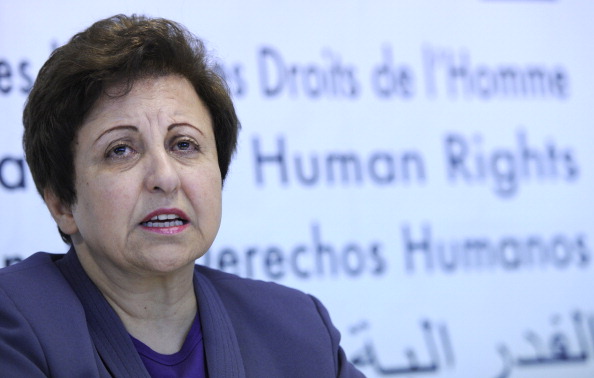“I urge the European Union … please do not engage in trade relations, especially shameful trade deals, with nondemocratic countries! I urge the European Union not to do that. Do not assist nondemocratic countries in suppressing their people to an even greater extent than they’re now doing.”
After two days of rousing rhetoric by politicians, including heads of state, and world-renowned experts on development at the European Development Days 2011 in Warsaw last week, it is a speech by Nobel Peace laureate professor Shirin Ebadi that keeps reverberating in my mind. Ebadi, a laywer, former judge, and founder of Defenders of Human Rights Center in Iran won the honor in 2003.
Ebadi’s delivery was as forceful, as compelling was the bluntness of her message: Economic engagement is not the way to go with oppressive regimes. “I’m urging the EU not to accept the dirty money of dictators,” she added.
In globalized economies, supply chains are dispersed throughout the world and distribution chains are forever groping for new markets. Ever heard of cassiterite or coltan? Most people never have, but computer and mobile phone manufacturers can’t function without them. Cassiterite is used in laptops and coltan in mobile phones.
Both come from mineral-rich Democratic Republic of the Congo, which has seen horrific civil war over control of these natural resources, claiming the lives of nearly 5 million Congolese in the past 15 years alone.
Some Western governments, the beneficiaries of these resources, have bowed to pressure and are doing something about it. Last year, the U.S. Congress passed laws to limit the flow of Congolese conflict minerals, as they’re called, to try and put an end to such horrors as child soldiers.
It’s a similar call to arms that Ebadi delivered, and she pulled no punches. First in line was the Swedish mobile phone company Ericsson, which she accused of selling software and other technology to the Iranian intelligence services enabling them to conduct more effective surveillance of suspected oppositionists. Ebadi claims many are behind bars because of this.
Then Eutelsat and its Hotbird satellite got put in the hot seat. She alleges that Eutelsat bowed to Iranian government pressure and took two Persian language satellite television channels, the BBC and Voice of America, off Hotbird and moved them to some remote satellite that practically no one in Iran can access.
A bit tangentially, perhaps, this seems oddly similar to what happened to independent Chinese language TV broadcaster New Tang Dynasty (a media partner of The Epoch Times). They also got booted off Hotbird and many are convinced it’s because the Chinese regime didn’t like them broadcasting news about human rights violations into China and knew which strings to pull and how. Ebali blasted the satellite company.
Since the French state owns about a quarter of Eutelsat (Ebadi said 40 percent but latest Bloomberg figures from November 2011 show 25.62 percent), Ebadi blasted Paris for complicity. “So my question to the French government is why are you helping the Iranian government to censor these channels?”
Polish President Bronislaw Komorowski delivered a keynote at the opening ceremony of the event, highlighting the special significance of Poland’s hosting the event.
“The fact that the European Development Days are taking place here in Poland has symbolic significance. Thirty years ago, the state of martial law was imposed in Poland. And those who dreamed of freedom and democracy ended up behind bars or in detention camps. We remember this difficult time and from the perspective of this experience, also this painful one from 30 years ago, we can evaluate and engage ourselves in the support of freedom and democracy in other parts of the world today.”
I suppose, not being a head of state, Ebadi could afford to be more feisty: “What do dictators do when they retire? They buy mansions in Europe. So simply don’t let them! Don’t accept their dirty money! Help make the world less accessible to these dictators.”







